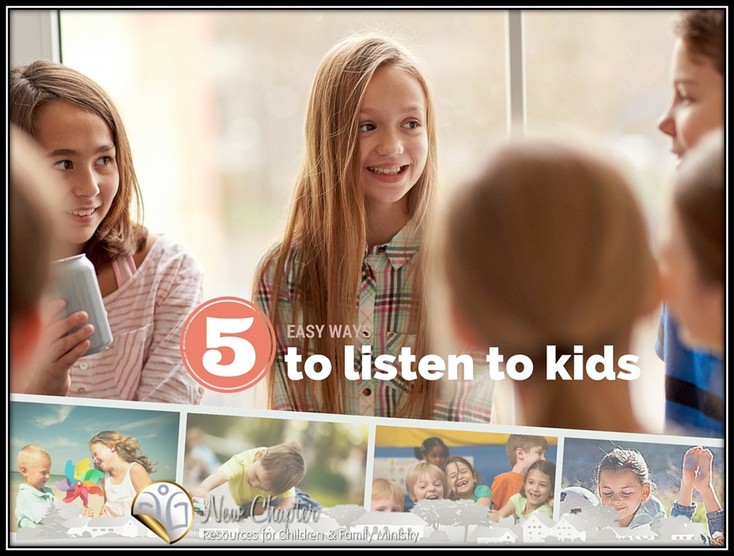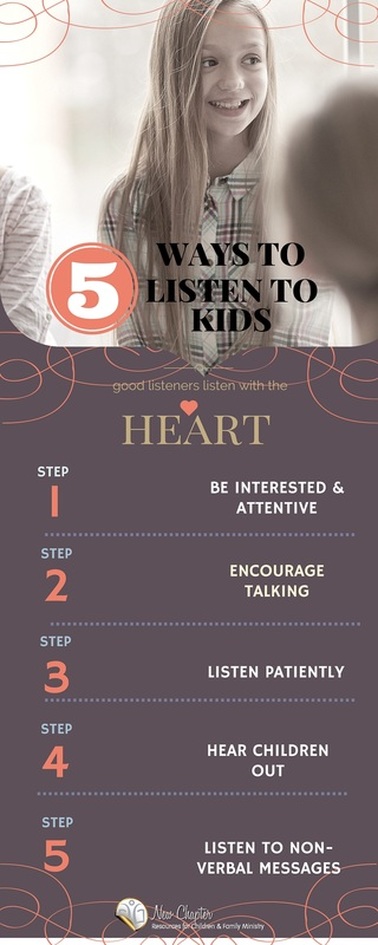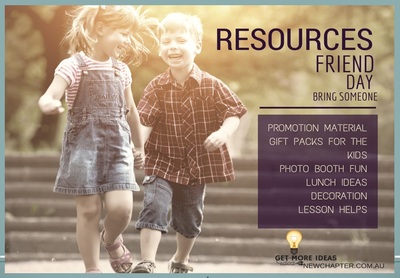But there's something that kids are desperately seeking.... and you can provide the answer. Kids are looking for someone who cares about them, who supports and encourages them regardless of what they say and do and .... yes, listens to them- really listens. Are you that person? Are you a caring listener for these kids?

Sometimes, who you are is more important than what you do. Click to tweet.
|
But what does this mean for your kidmin families and those kids in your groups, especially the ones who quietly slip almost unnoticed into your programs and events?
When parents and other adults are constantly linked to email or Facebook, how much is left to connect and listen to these children?
In the business of life and the distractions of the ever-present mobile devices, parents frequently just tune out when the kids are talking. We've all done it. When you're tired or focused on other tasks, it's easy to just make the noises that sound like you're listening, but your mind is far away. Listening well to anyone is important and even more so for children. It means being willing to turn the television off, forgetting Facebook until later or ignoring the latest email notification to focus on a child.
Guidelines for Good Listening Skills:
1. Be interested and attentive. Children can tell whether they have your attention by how you reply or, for that matter, don't reply. It involves looking at the speaker; getting down on eye level so that you can maintain eye-contact.
2. Encourage talking. Some children need an invitation to start talking. Children are more likely to share their ideas and feelings when others think them important. Ask questions to clarify all that they are saying and to draw them out. Quiet, introverted kids are often overlooked. Encourage each child to talk in a small group environment.
3. Listen patiently. People think faster than they speak. Children often take longer than adults to find the right word. Listen as though you have plenty of time. Don't correct their grammar or use of language. When you listen to children, patience is a virtue.
4. Hear children out. Avoid cutting them off before they have finished speaking. It is easy to form an opinion or reject children's views before they finish what they have to say. It may be difficult to listen respectfully and not correct misconceptions but respect their right to have and express their opinions. Reflect back your understanding of what's been said so that you are clear of what's been said. It also demonstrates your desire to fully understand them.
5. Listen to non-verbal messages. Many messages children send are communicated non-verbally by their tone of voice, their facial expressions, their energy level, their posture, or changes in their behaviour patterns. You can often tell more from the way a child says something than from what is said. When a child comes in obviously upset, be sure to find a quiet time then or sometime later, to sit down with them and lsiten.. Good listening will often reduce tension and solve problems.
Download and print the infographic below and pin it up as a reminder to be present and available to listen to kids.
Good listeners listen with their heart, and isn't this what God would expect of us? What better way to show God's love to the kids in your children's ministry than to take time to listen attentively.
Sometimes, who you are is more important than what you do.
— Anne Johnson (@annesnewchapter) September 15, 2015










 RSS Feed
RSS Feed








